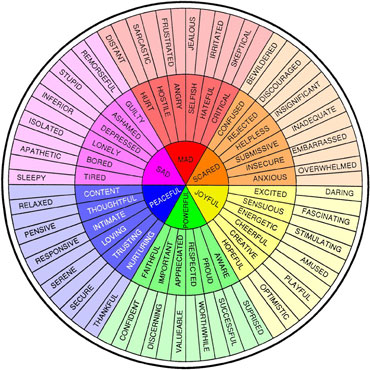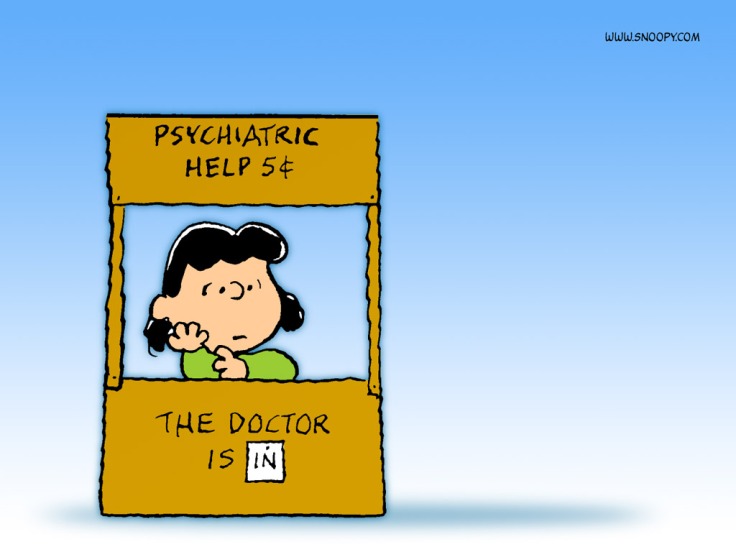 This past month has been an emotional roller coaster in my world. After two long years of missing them deeply, I travelled back home to visit family, reconnected nostalgically with the city & beloveds of my youth, and bore witness the pain of my amazing cousin who lost her love to foolishness and lies. All this while joyfully attending to the germinating seeds of a possible new love of my own; I’m still trying to catch my breath!
This past month has been an emotional roller coaster in my world. After two long years of missing them deeply, I travelled back home to visit family, reconnected nostalgically with the city & beloveds of my youth, and bore witness the pain of my amazing cousin who lost her love to foolishness and lies. All this while joyfully attending to the germinating seeds of a possible new love of my own; I’m still trying to catch my breath!
Life happens, sometimes overwhelmingly so, and when it does it can seem almost impossible to sort through and manage all of the emotions that come. Whether the joyful threads of creating new love stories, the bittersweet stitches of crafting memories with loved ones you will soon have to miss, or the painful loss of cutting deep threads of relationships you don’t want to lose; it can feel almost impossible to cope.
For most of us reading (or writing) this post, the feelings we experience during many of our emotional life events are intensified by our overexcitabilities. The excited hello after a long goodbye, the tentative first kiss, the angry words said in haste, the inexplicable actions of someone we thought we knew… each of these can sear into our souls like a brand, leaving an opening we cannot escape even for a moment, and ultimately a scar that has the power to reawaken too powerfully even after most might have forgotten its strength.
How can we cope with our emotions when they become so overwhelming that we might fear we could lose all control?
- Separating emotions, thoughts and behaviors:
I find it helpful to think about my internal experiences as three separate and independent (though interdependent) parts of myself:- Emotions are automatically created, outside of our control, real experiences that on one hand provide us with useful information and make life beautiful & profound but also may make it difficult for us to make healthy choices or manage our worlds when they are intense. I personally believe that emotions are always true and valid; experiences we ideally seek to understand and accept even when they are unpleasant.
- Thoughts are usually automatically created and outside of our control but, while they are lived experiences that shape our reality and world, they are not necessarily true or valid. Ideally we can learn to find space in our minds between the birth and acceptance of a thought so that we can evaluate it for truthfulness, usefulness, and validity before accepting it; mindfulness training is very helpful for this skill.
- Behaviors are actions that are committed in response to our feelings and thoughts. We may often engage in automatic behaviors (and in some cases, like driving, this is desirable) but we always have the power to choose to not engage in automatic behavior if we find that it is not helpful.
- Accepting
- Emotions

It is a battle already lost to attempt to fight against or escape our emotions. Others may tell us we “shouldn’t” feel as we do, we may tell ourselves we “shouldn’t” feel as we do, and still… we will feel exactly how our limbic system decides we are going to feel. Our emotional states are the product of chemical substances outside of our control. Even if, as many of us do, we choose to try and change our emotional experiences with other chemicals like alcohol or other drugs the truth is that we will have to come back and face them once the artificial chemicals wear off. And these are rebellious little buggers! The more we deny them, fight them, and tell them to shove off the more insistent they become. They will not be ignored; if you try to bury them in a hole they will dig out through another (less pleasant) one.Feelings are things that must be worked through, not around. There are no shortcuts but you can take the fastest route; acceptance. Look at your feeling, identify it as it is (sadness, pain, fear, anxiety, depression, excitement, joy…), accept that you not only feel this way but you are feeling exactly as you “should” feel given your situation. The truth is that if anyone on the planet really was you they would also feel exactly the same way. You can be sure of that because you just so happen to be you and it is how you are feeling!You don’t need to like how you feel, love how you feel, or want to stay in this feeling. All you need to do right now is know how you feel and give yourself permission to experience your emotions. - Thoughts
When overwhelmed with intense emotions our thoughts can have a tendency to become completely out of control. Automatic thoughts are not chosen and we can’t control our initial experiences of them but we do have more choice once we can recognize that we are having a particular thought. If, for instance, I recognize that I’m having a pleasant thought about hugging my sweetheart I can choose to dive into that imagining and prolong it for as long as I prefer. Or, if I am having an unpleasant thought about an argument I had with a loved one I can choose to distract myself with a chore or a question I’m working on instead. Accepting our thoughts is a different thing than accepting our feelings; we want to accept that we have thoughts we can’t control (and not feel bad for doing so) but also give ourselves the responsibility of directing our thoughts in ways that serve us instead of hurting us.I’ve had awful thoughts before, maybe you have too, thoughts of committing actions I would never dream of actually doing– even violent thoughts at times. Sometimes, when I was younger, I worried that I was a bad person because some horrifying image would pop into my head. I’d give you an example but I’d rather choose not to think such things :). When we think horrible things it’s our job to accept that we will have such thoughts. Our brains like to seek out novel connections when not otherwise occupied and sometimes those connections might make a horror writer blush. Accept your mind; it is vast and wonderful but it also might have a bit of a gremlin in there to keep you on your toes. If you don’t like a thought you certainly don’t have to keep it. - Behaviors
Everything you’ve done up until this moment I dare you to accept– and I hope you can do so without judging yourself about it!The past is gone and you cannot change it– no matter how much you beat yourself up about whatever it is you have done. Yes, remember your actions and remember the consequences they created. Acceptance of your behaviors (and the you who you were when you acted in whichever way) might first begin with accepting that the person who you were in the moment that you created the behavior really thought it was the right thing for you to do. Maybe you suspected it would turn out badly, maybe other people told you it was a wrong choice, and maybe deep down you knew you shouldn’t do what you did. In the end, though, for whatever reason (even if it was simply because you couldn’t stop yourself) you thought you needed to do what you did or maybe that you had to do whatever it was. Lucky you, you are no longer that person! You are now a person who knows what happens when you do that thing and you know it didn’t work out well. That also means, lucky you, that when faced with the opportunity to do that same thing (in that same situation) again you can arm yourself with your hard-earned experience and choose another dish from the option smorgasbord.
- Emotions
- Expressing
Once we have tackled the sometimes immense task of understanding and accepting the intense emotions of an emotional overwhelm it is time to combine the forces of our emotions, thoughts, and behavior in order to use our fervent energy in a way which is helpful and healthy instead of wandering into actions we might regret. If we stop at the first step and don’t find some outlet for our emotional energies it can keep us trapped in a state of stress that is not only uncomfortable but is also very hard on our bodies.Happily, we have choices about how we will use and express our emotions and if we are lucky and mindful we can choose healthy ways of expressing what we feel. The emotional expression that will work best for each of us is different. If you haven’t yet discovered what expressive outlets can help you deal with your feelings then you might look for ideas within your own unique combination of skills, talents, and overexcitabilities.If you enjoy artistic pursuits then you might see if trying to visually capture your emotional state through drawing, painting, or collage is helpful. If you are more verbal then perhaps it would be effective to write a short story or creative essay about what happened. If you are musically inclined it might be helpful to write a song that captures the essence of your feelings or give yourself space to play improvisationally through the collected threads of feelings you have swirling inside.If you are more physically oriented you might find that going for a run, a hike in a wild natural place, or boxing with a bag or hitting a pillow with a bat or racket may be just what you need. Long bubble baths with soothing music work well for me when I’m feeling anxious or sad.
If you are primarily intellectually oriented it might be helpful to use your emotionally intense experiences as inspiration for creating solutions that can help you (and maybe even others) work through or avoid similar experiences in the future. There are at least 7.4 billion ways (as of August 2016) to use intense emotional energies healthily. I’d love to hear what works for you in the comments section!
- reframing
When we get emotionally overwhelmed we usually are experiencing multiple threads of emotion. Yes, I did say that we should work to accept our emotions as true and valid but at the same time we also get to harness the power of our thoughts and behaviors to reframe our experiences and redirect our emotional response system to a path that we prefer to experience.Our thoughts are the driving force of our feelings and we do have some control over what we choose to think. When we experience intense emotions we react with intense (and often negative) thoughts about ourselves. When we experience a terrible breakup of a relationship we may blame ourselves for “being” stupid, weak, naive, or crazy. When we feel afraid we might tell ourselves that we aren’t good enough, capable, or worthy. Even when we are trying to open up to the loveliness of loving another person we may tell ourselves that we are not ready to love, not lovable, or that we are going to make a fool of ourselves. This is where we have the power to drive instead of being driven.When we find ourselves having these negative automatic thoughts in response to our emotions we can choose to evaluate those thoughts and change them. Is it true that you are stupid? I’d guess, especially if you’re reading my blog, that you are not. Are you weak? Nope, you’ve survived long enough to read this so you must be one tough cookie. Are you naive? Maybe sometimes but you won’t make this particular mistake again. Are you crazy? Probably not, or you wouldn’t be asking yourself if you are. Are you unworthy? Incapable? Unlovable? No! You are totally worthy, capable, and lovable! I may not know you but I’m certain this is true! You are a lovely, unique, interesting, and compelling human being who deserves to live a rich and full life with love, satisfaction, and happiness. It doesn’t matter who you’ve been or what you have done in the past. You are, indeed, a special snowflake. If that doesn’t feel true for you today I dare you to make the choice to find that unique youness that is the genesis of your personal beauty and to spend the rest of your life showing yourself how awesome you are!For all of the choices you have made up to this very moment there is more than one way to understand them. If you called your ex 100 times in an hour and drove them away with your neediness you can look at it as “crazy” or you can look at it as persistent. Now, I’m not saying that using your persistence in that way will serve you well or is a good idea but, wow, you have some fierce determination in you! If you didn’t show up for your first day of work, or a job interview, because you were paralyzed by your anxiety then you could tell yourself it is a weakness inside of you or you can recognize that you were doing a very good job of protecting yourself from whatever you were afraid of. No, that’s not an effective way of reaching your life goals, and it would be a great idea to find more helpful ways of taking care of yourself, but give yourself credit for being able to protect yourself in the meantime.
When you give yourself the opportunity to see the positive attributes that are driving even the most negative of your choices (which is what reframing really is) you are giving yourself two gifts: first, you are giving yourself the gift of increased self-awareness by recognizing a fuller picture of who you are and what you are doing, and second you are giving yourself the gift of being able to use that increased self-awareness to choose more effective behaviors next time. Instead of using your persistence to call too many times you might choose to crochet your sweetheart a blanket or train for a marathon that supports a cause you (or both of you) feel strongly about. Instead of skipping an interview or first day of work you might use your ability to take care of yourself to take steps to calm your anxiety such as getting a massage, taking a bubble bath, or visualizing the best that might happen instead of the worst.
If you need help finding a positive reframe, shoot me an email or post in the comments and I’d be happy to share my thoughts about the good sides of your feelings, thoughts, or actions.
Our feelings can often seem like they are our worst enemies, especially when we are overwhelmed and not quite able to make the choices we would prefer. Being intense and sensitive, having overexcitabilities, and really living life is sure to lead us to weave patterns into the grand adventures of our lives which are confusing, painful, and maybe even hard to survive. No, there is no magic wand to ease you through the stress of change, the fear of new paths, or the pain of loss. There really is no way but through and you can get through. You have a mind that gives you the chance to dream never before dreamed dreams, a heart that can experience the richest depths of joy and pain achievable, and a life that is your own personal masterpiece that you can sculpt according to the dreams you choose to believe.
Thank you for reading and I look forward to hearing your thoughts!
For more articles regarding Emotional Intelligence, check out Hoagies Gifted page!

Julie E. Creech is a Marriage and Family Therapist registered intern in the State of California #IMF93192 with a growing practice, specializing in therapy for gifted and creative adults and teens, at the Process Therapy Institute in Campbell CA.








